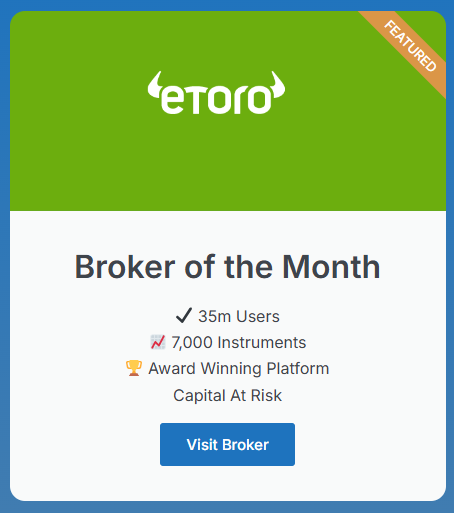Spread betting is trading the financial markets as a bet rather than buying or selling the underlying instrument. Instead of buying or selling a set amount of shares, futures, options or CFDs, you bet an amount based on every point the market moves through a spread betting broker.
As spread betting is trading structured as a bet, there is no capital gains tax on spread betting profits.
What Does Spread Betting Mean?
Spread betting is the name given to a kind of trading that enables investors to speculate without having to own the assets. While, conventionally, an investor can profit only if the market increases in value, spread betting enables customers to bet on the market going up or down.
- Related guide: 50 rules for successful trading
Advantages Of Spread Betting
The main reason people trade via spread betting instead of investing or CFDs is that there is no capital gains tax with spread betting, so your profits are tax-free.
Other reasons for spread betting include:
- Spread betting offers investors the possibility of making a lot of money (but there is an equal amount of risk).
- Profits made from spread betting are not subject to tax in the United Kingdom (at the moment)
- Investors can gain access to worldwide financial market trading
- Trading can be intellectually challenging and exciting
- Only a small relative amount of money is required if you try spread betting to open your trade
- Spread betting is available 24 hours a day (even some markets on the weekends)
- It is possible to profit even from a falling market, by going short
- Spread betting can help you hedge your longer term growth investments
- It enables a more diverse investment portfolio
- Trading can easily be done from smartphones or tablets on the move thanks to many mobile apps which are available from the top brokers
Let’s look more closely at these many advantages to find out why so many people are attracted to spread betting.
- Related guide: Can you make money spread betting the financial markets?
Tax free profits
Perhaps the greatest benefit of spread betting is that all profits are free from tax in the UK, with spread bettors being exempt from stamp duty and capital gains tax. The reason for this is because it is considered to be a derivatives product – investors do not buy a security, instead the bet on what its future price will be. Tax free profits are one of the main differences between spread betting and CFDs.
Why profits being tax-free make a difference?
It is possible to earn an additional 28% or 18% return on any profits. Capital gains tax stands at either 28% or 18% (depending on your tax rate) on your profit if you sell your shares. Not only this, but stamp duty (a tax of 0.5% currently) is usually applied to share purchases in the UK, but spread betting is exempt from this. For both of these reasons, spread betting is a more profitable choice than stock broking, for example, where the underlying security is purchased.
This only of course applies if you make a profit, the downside is that if you lose money spread betting (as around 80% of people do) you cannot offset your spread bet losses against you other capital gains.
Read this amusing story about why spread betting is tax-free for a more sinister look at the tax free benefits.
Leverage and margin
Tax savings are not the only benefit of spread betting. Another advantage is that spread betting is traded on margin or leveraged, and therefore only a small amount of the value of the shares you buy needs to be deposited in order to open a position.
If, for example, you spread bet using a margin or leverage of 10%, the initial deposit on a position on £,5000 worth of shares is £500. As opposed to buying the shares outright with a stockbroker, where £5000 must be paid out to buy £5000 of shares.
This means you need a lot less money up front if you want to spread bet and this opens up wider access to the markets.
So, if you spread bet with a 10% margin, who pays for the remaining 90%? The answer lies with the provider of the spread betting services who, effectively, covers the trader. The size of the margin will differ between different markets and providers, with lower margins generally being offered on more popular markets. You should note, however, that while leverage often is celebrated as a top feature of spread betting, it also magnifies the risk as it becomes possible to lose more money than you used to open your trade. It also means you can diversify your positions, to reduce the single position exposure of your trading portfolio.
Short selling
Spread betting offers the possibility of short selling, allowing you to make a profit by betting on a fall in the market’s value. You can also hedge your investment portfolio with a spread bet if you think a market of share will go down in the short term.
So, how does short-selling work as a spread bet?
Short selling involves selling the security before buying it again once the price has dropped.
Technically, your broker is lending the shares to you when you are short-selling. The shares are lent from either other client position, borrowed from a fund, or (in the case of b-booking) not hedged at all.
If the market falls, you then can buy back the position and your broker will give back the shares to whomever they borrowed from (they pay a fee to borrow them and don’t take the risk on the position). Your profit is any difference in price between the original selling price of the shares and the price at which you bought them back.
For example, if a share currently trades with a value of £73.00 and you have reason to believe those shares will fall soon, you can short sell a thousand shares (£10 per penny) in the company for £73,000.
If you called the market right and a disappointing set of company results in the release causing the price of shares to drop to £72.50 it means you can purchase a thousand shares in the company for £72,500.
Your profit is the difference between the selling price of the share at the beginning of your trade and the price that you paid in buying them back. In this case, £500.
Keep in mind though that theoretically, the price of a share can continue increasing with no limits. This is different to buying shares outright, where market prices are limited to dropping down to zero and no further. Due to this, you need to implement guaranteed stops or stop losses, on short positions because your losses are potentially unlimited.
Going long
If you think that a share price quoted at £52 is likely to go up and want to place a spread bet on it, you would be “going long”.
There will be two prices quoted – 5202 is the price to “sell” and 5198 is the price to “buy”.
You make the choice to go long at 5202 for £10 a point (1 point = 1p). That means for each point that the market goes up, you gain £10. You are proved to be correct in your prediction. In this example the price goes up to 5306 and in its sell price to 5302. You want to take your profits and therefore you choose to sell your shares at 5302.
5302-5202=100
As your bet was £10 for each point, you made a profit of £10×100=£1000.
Market range
Spread betting offers trading on literally thousands of different markets. Depending on which provider you choose and the various markets on offer from them, you may be able to speculate on:
- Commodities
- Options
- Indices
- Shares
- Interest rates
- Binaries
- Foreign Exchange
Trading 24/7
You can spread bet 24/7 if you choose, even on weekends. This means you can speculate on events that take place out of the market’s standard trading times, when other investors miss out. Oil is one market which offers a clear example of this. Saudi Arabia has considerable influence over the oil market, and any decision which is made out of standard trading hours would result in a sudden fluctuation overnight. Spread betting brokers also offer forex and index trading over weekends.
The spreads are wider because it is harder for brokers to hedge their position, but they still provide a good indication of where a market may open when normal trading hours resume.
Risks Of Spread Betting
With spread betting, it is possible to lose money quickly, and especially so if you have a professional trading account for your losses to exceed your deposit.
High-risk
Spread betting brokers are obliged by the FCA (who regulate spread betting) to display on their website what percentage of retail trading lose money. They must also state that professional traders could potentially lose more money when they spread bet than they put down as a deposit when they opened the trade. This is one primary difference between stockbroking and spread betting.
Leveraged losses
Take stockbroking, for example. If you purchased shares worth £1000 and then the market crashed so the shares were worthless, all of the money (£1000) would be lost but no more than that. However, in the case of spread betting, if you put down £1000 but the market moved against you, you could not only lose £1000 but if you didn’t have the right risk management in place, you could potentially lose thousands more.
No underlying ownership
As you are placing a bet on a share price rather than owning it you do not get to vote in company AGMs or have any rights on corporate actions. You simply have a bet with your broker. Spread betting platforms will not normally allow spread traders to vote in company issues, but in some circumstances, you position may be reflected in corporate actions.
Not investing
Spread betting is trading, not investing. As it is riskier than investing in funds, bonds and shares, it is sensible that spread betting is used only as a part of your overall investment strategy so you can lower your trading risks as a whole or speculate with a small percentage of your risk capital.

Richard is the founder of the Good Money Guide (formerly Good Broker Guide), one of the original investment comparison sites established in 2015. With a career spanning two decades as a broker, he brings extensive expertise and knowledge to the financial landscape.
Having worked as a broker at Investors Intelligence and a multi-asset derivatives broker at MF Global (Man Financial), Richard has acquired substantial experience in the industry. His career began as a private client stockbroker at Walker Crips and Phillip Securities (now King and Shaxson), following internships on the NYMEX oil trading floor in New York and London IPE in 2001 and 2000.
Richard’s contributions and expertise have been recognized by respected publications such as The Sunday Times, BusinessInsider, Yahoo Finance, BusinessNews.org.uk, Master Investor, Wealth Briefing, iNews, and The FT, among many others.
Under Richard’s leadership, the Good Money Guide has evolved into a valuable destination for comprehensive information and expert guidance, specialising in trading, investment, and currency exchange. His commitment to delivering high-quality insights has solidified the Good Money Guide’s standing as a well-respected resource for both customers and industry colleagues.
You can contact Richard at richard@goodmoneyguide.com





